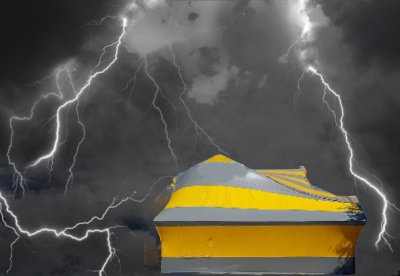Don't Let the Fear of Fumigation Stop You from Contacting a Termite Company...
because many times you don't need to.
 According to Section 1992 of the California Structural Pest Control Board Act, any termite treatment other than fumigation is considered substandard. If a termite company recommends an alternative treatment, they are legally required to disclose that it is not the state’s preferred method—even if the inspector believes fumigation is unnecessary.
According to Section 1992 of the California Structural Pest Control Board Act, any termite treatment other than fumigation is considered substandard. If a termite company recommends an alternative treatment, they are legally required to disclose that it is not the state’s preferred method—even if the inspector believes fumigation is unnecessary.
The state’s stance is that fumigation is the only true full-structure treatment. The Board explicitly states: “Any pest control company that claims whole house results with local or spot control methods is guilty of false advertising and should be reported.” Even if a company offers a full-structure warranty for a spot treatment, they cannot claim it is equivalent to fumigation.
Many of the larger termite companies follow the state’s recommendations without deviation. One major company, in particular, lacks a comprehensive alternative treatment, and since their salespeople are heavily incentivized, they will almost always push you toward fumigation.
That said, no one wants to fumigate. The process is disruptive—you have to pack up food, trim vegetation, rake back gravel, find temporary lodging, and board pets. The state argues that even a single visible infestation could mean hidden termites inside walls, making fumigation the best choice. However, homeowners often delay calling a termite company because they assume fumigation is their only option. What could be resolved with a localized treatment for under $1,000 can quickly turn into a $2,500 fumigation with another $2,500 in wood repairs.
If a home was fumigated five years ago and now has one small area of infestation, inspectors are still required to recommend fumigation as the primary solution.
Outside of real estate transactions, the decision to fumigate is ultimately up to the homeowner. There are alternative treatments that not only eliminate termites but also provide ongoing protection. For example, Termidor, a commonly used termiticide, remains active in treated wood for up to 10 years, according to the manufacturer. Fumigation, on the other hand, leaves no residual protection—termites could theoretically reinfest the same day the tent is removed.
Additionally, fumigation does nothing to eliminate subterranean termites, which nest underground.
When it comes to termites, early action is always best. The longer a homeowner waits, the worse the infestation can become, leading to more extensive (and expensive) damage. Don’t let fear of fumigation keep you from calling a termite company. At California Termite, we treat every home as if it were our own. If we think fumigation is the only option, that’s what we’ll recommend. But we’re also not afraid to push an alternative treatment despite the State’s stance on fumigation.
